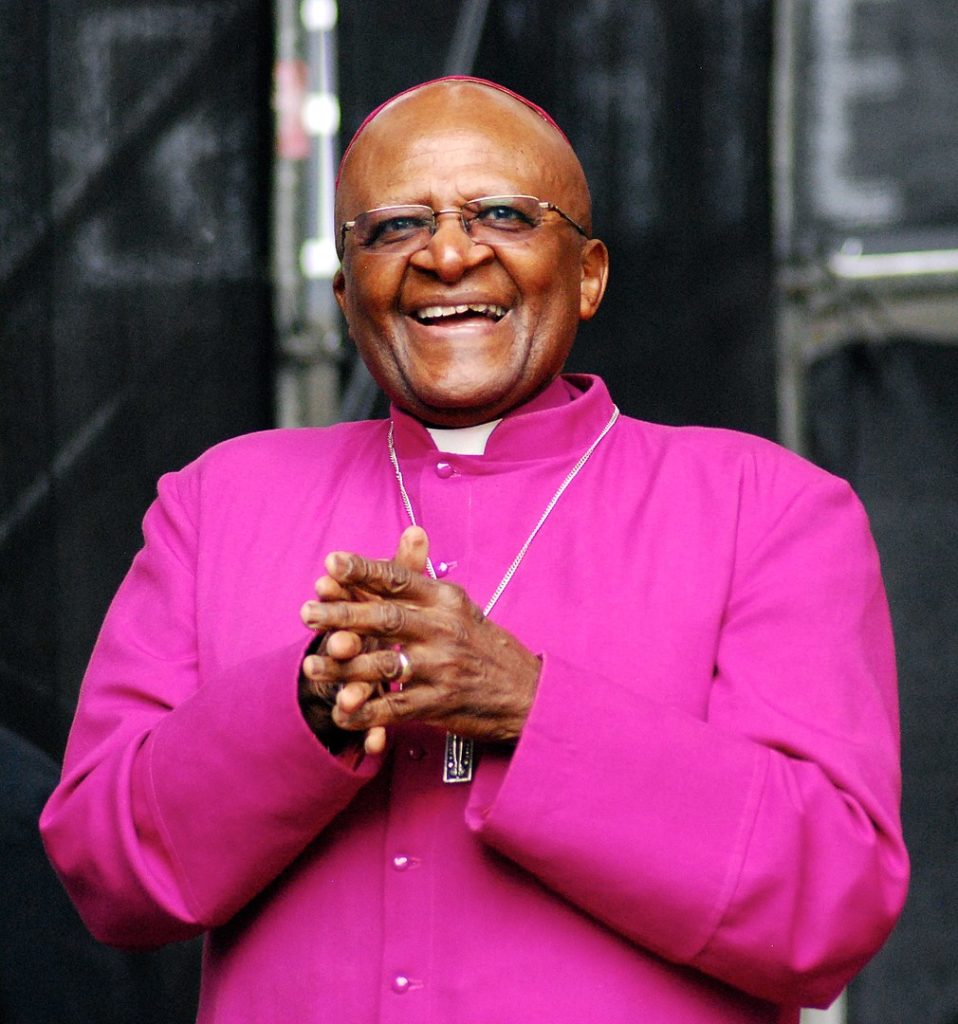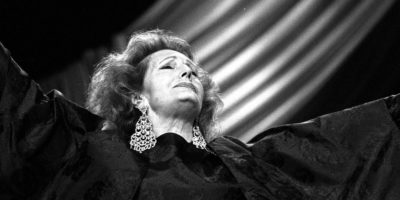Top 20 Facts about Desmond Tutu
*Originally published by Lillian in April 2021 and updated by Brian in January 2024
Desmond Tutu is a South African Anglican cleric and theologian well-known for human rights activism and fighting apartheid.
Tutu was born in 1931 and was known as the voice of the voiceless. He was among the Black South Africans who were not shy of speaking about apartheid.
He served as bishop of Johannesburg and Archbishop of Cape Town. Tutu was the first African to hold such positions in both instances.
In 1984, he won the Nobel Peace Prize for his efforts in resolving and putting an end to apartheid.
Tutu continues his activism even after retiring from the church. He is active in campaigns against HIV/AIDs, poverty, and xenophobia.
Here are the top 20 facts about Desmond Tutu.
1. Like father like son: Desmond Tutu trained to be a teacher
He was born of mixed Xhosa and Motswana heritage. His family was poor and they lived in Klerksdorp, Union of South Africa.
After high school, Tutu trained as a teacher although he wanted to be a doctor. His family could not afford to take him to medical school.
Tutu got married to Nomalizo Leah Tutu and they had children.
His father was a teacher too who trained at Pretoria Bantu Normal College. He later graduated from the University of South Africa in 1954.
Tutu was opposed to the poor-quality education that the Blacks were subjected to. He left teaching in a quest to improve the lives of black South Africans.
2. His bishop advised him to pursue the priesthood

By Kingkongphoto – Wikimedia
On the advice of his bishop, Tutu studied for the Anglican priesthood. He got ordained as a priest in the Anglican church in 1960.
During this time, the South African government launched a program of the forced relocation of black Africans and Asians from newly desired whites-only areas.
3. Desmond Tutu became the first black General Secretary of the South African Council of Churches
Desmond Tutu left South Africa for London in 1962 to study theology. in 1966, he graduated with a master’s degree.
He returned home, and for five years he taught theology. Tutu went back to England to serve as the assistant director of the World Council of Churches in London.
In 1975 he became the first black African to serve as Dean of St. Mary’s Cathedral in Johannesburg. In 1978 he became the first black General Secretary of the South African Council of Churches.
At the time of his appointment as the Archbishop of Cape Town, Tutu was in Atlanta Georgia receiving the Martin Luther King, Jr. Nonviolent Peace Prize.
His nomination did not go unopposed. White Anglicans left the church in protest. During his ordination, more than 2000 people showed up at the Cathedral of St. George the Martyr.
4. Tutu is a climate change activist

By Abcdion – Wikimedia
Tutu was one of the attendees of the 2009 U.N. climate change conference in Copenhagen, Denmark.
He advocated for governments to sign an agreement on climate justice. Tutu has always been passionate about the environment and sees this as an important issue since it will greatly affect future generations.
He filed petitions to the U.S. government concerning climate change after they exited the Paris Agreement.
One way that he believes everyone can help fight climate change is by not wasting energy.
He also urged energy companies to spend their resources on developing sustainable products.
5. Tutu was opposed to the apartheid education system
While changing the education policy in South Africa during the Apartheid, the blacks were offered an inferior education system.
This did not go well with Tutu who was a teacher then. He opposed the new system that was governed by the Bantu Education Act.
Tutu left teaching and went to be an Anglican priest. He used his new position to support those marginalized by the political system.
This position gave him a platform to publicly denounce apartheid as being evil and unchristian.
He called for equal rights for all South Africans and an equal system of common education.
His advocacy for equal rights was not well received by the government. They revoked his passport to prevent him from travelling and speaking abroad.
6. Tutu was honoured for his fearlessness

By Kristen Opalinski – Wikimedia
Tutu’s fight with the government drew the attention of the world. He got his passport back.
Desmond Tutu was honoured with the Peace Prize for his opposition to South Africa’s brutal apartheid regime.
The Nobel Committee commended his conscious thoughts and fearless stance in fighting for the rights of his people. He was seen as a unifying element for all African freedom fighters.
Tutu’s model of non-violence was saluted as the right path to liberation. His Nobel Peace Prize earned him international standing.
This award helped to pave the way for a policy of stricter sanctions against South Africa in the 1980s.
7. He published academic journals on apartheid
Tutu turned many aspects of apartheid into written law, more so those that affected education.
Some of the white papers that he wrote on the effect apartheid had on education in the country. Black South Africans were racially segregated and their education facilities diminished.
Tutu spoke more on issues of discrimination and inequality in South Africa. while serving at the Anglican-Catholic Conversations, he published academic journals as well as journals on current affairs.
He joined Anglican student delegations to meetings of the Anglican Students’ Federation and the University Christian Movement.
8. When he became bishop, Tutu spoke about social injustice more

Photo sourced from Wikimedia
Tutu used his position to speak out about social injustice. He met with other Black Consciousness Movement figures like Mamphela Ramphele and Soweto community leaders like Nthano Motlana.
The trio endorsed an international economic boycott because of the apartheid policy. They also opposed the Terrorism Act together with Winnie Mandela.
Tutu was not afraid to call out white South Africans during his Sunday sermons for being silent.
9. Death threats: white far-right groups threatened Tutu

By White House – Wikimedia
Tutu received hate mail as well as death threats from white far-right groups like the Wit Wolwe. Man of the white liberals was not pleased with his defiance against the government.
Alan Paton and Bill Burnett were the whites at the forefront of opposing Tutu’s reforms. They criticized his middle-class lifestyle which they said was in contrast to that of the poor he fought for.
In 1983, Tutu was appointed as the patron of the United Democratic Front.
10. Tutu advocated for female and gay Anglican priests
During his term as the Archbishop of Cape Town, Tutu approved the ordination of female priests in the Anglican church. He likened the barring of female priests to apartheid.
Tutu also appointed gay priests to senior positions despite opposition from the church. The church was insisting on gay priests remaining celibate.
11. Tutu was a strong advocate for the African philosophy of Ubuntu
Desmond Tutu was a strong advocate for the African ideology of Ubuntu, which emphasized interconnectivity and shared humanity. Tutu believed that our fates were inextricably linked and that each individual’s well-being was intertwined with the collective’s.
This profound worldview informed his steadfast dedication to social justice and healing. Tutu viewed Ubuntu as a transformational force that promotes understanding and compassion.
Through Ubuntu, he argued for a society where empathy and mutual respect provide the groundwork for long-term change, mirroring the belief that our shared humanity binds us together in the search for a more equal and peaceful life.
12. Desmond Tutu’s legacy extended far beyond South Africa
Desmond Tutu’s influence reached well beyond South Africa, making him a global symbol of peace, justice, and human rights.
His life and efforts inspired people throughout the world to strive for a better future filled with equality, compassion, and understanding. Tutu’s uncompromising dedication to these beliefs has made a lasting impression on history.
His activism and leadership, now a thing of the past, continue to resonate, inspiring people to carry on the torch of social justice.
Tutu’s continuing impact guarantees that his vision of a more egalitarian and peaceful world continues to guide future generations.
13. Tutu maintained a simple lifestyle
Despite his celebrity and accomplishments, Tutu had a modest existence. He lived simply and avoided overt shows of riches.
He thought that genuine pleasure comes from helping others and living a life with meaning and purpose. Tutu’s dedication to simplicity mirrored his faith in the virtues of humility and compassion.
Throughout his life, he proved that monetary wealth does not determine one’s value. Instead, he highlighted the value of contributing to others’ well-being and finding joy in a purpose-driven life.
Tutu’s decision to embrace simplicity set a tremendous example for those who appreciated his true commitment to service and compassion.
14. Tutu was a prolific writer

Laura Richardson, Desmond Tutu and Diane Watson.JPG Office of U.S. Rep. Laura Richardson (D-California), Public domain, via Wikimedia Commons
Tutu was a prolific writer, having written several works on religion, social justice, and his own life experiences. His literary works revealed remarkable insights into his ideas and opinions on a wide range of critical topics.
Tutu’s writings, which ranged from spiritual meditations to critiques of societal inequities, expressed the core of his beliefs. His excellent words conveyed wisdom gathered from a life committed to activism and service.
Tutu’s literary legacy, now in the past, remains relevant, providing a timeless store of information and inspiration for anyone seeking a fuller appreciation of his significant contributions to religion, justice, and the human experience.
15. He was a devoted fan of cricket
As a South African, Tutu was an avid cricket fan who used his passion for the game to preach racial peace and social reform. His enthusiasm for cricket went beyond fans, becoming a strong force for forging togetherness.
officiated the opening ceremony of the 2010 Cricket World Cup in South Africa as a symbolic gesture, a painful moment for a country still mending from its turbulent history.
Tutu’s engagement in cricket demonstrated how sports might cross barriers, uniting people and contributing to the larger narrative of social development in post-apartheid South Africa.
16. Tutu is known for his infectious sense of humour and laughter in any situation

Desmond Tutu (5547444409).jpg University of Mount Union, CC BY 2.0, via Wikimedia Commons
Despite the gravity of many of the topics he addressed, Tutu was noted for his contagious sense of humour and ability to utilize laughing to relieve stress and connect with others.
He thought that comedy might be an effective technique for uniting people and fostering understanding.
Tutu’s funny and cheerful approach to life enabled him to manage difficult circumstances with grace, frequently employing laughter to bridge gaps and build a feeling of common humanity.
His masterful use of humour became an intrinsic part of his demeanour, leaving an indelible impression on those who were lucky enough to be in his cheerful and laughter-filled company.
17. He advocated for sustainable development and responsible resource management
Tutu’s commitment to social justice encompassed the environment. He spoke out against climate change and environmental damage, calling international leaders to take steps to safeguard the earth for future generations.
Tutu was a strong champion for sustainable development and appropriate resource management. His environmental efforts included attending the 2009 United Nations Climate Change Conference in Copenhagen, Denmark.
Following the United States’ withdrawal from the Paris Agreement, he filed climate change petitions with the US government.
Tutu thought that tackling environmental challenges was critical to creating a fair and equitable world. His previous efforts continue to inspire a global dedication to environmental preservation and eco-friendly behaviour.
18. Tutu was a vocal advocate for HIV/AIDS awareness and prevention

Firdaus Kharas and Desmond Tutu watching The Three Amigos.jpg Brent Quinn, CC BY-SA 4.0, via Wikimedia Commons
Tutu was an outspoken campaigner for HIV/AIDS awareness and prevention, particularly in Africa. He addressed the disease’s stigma and advocated for improved access to treatment and care.
He previously co-founded the Desmond Tutu HIV Foundation, which works to solve these serious concerns. Tutu’s action was crucial in breaking down barriers and cultivating sympathy for individuals impacted by HIV/AIDS.
His diligent efforts helped to raise awareness, promote education, and advocate for the rights of those living with the virus. Tutu’s legacy as an HIV/AIDS campaigner continues to influence worldwide efforts to combat the pandemic.
19. Tutu played a crucial role in the Truth and Reconciliation Commission (TRC)
Tutu played a critical role in the Truth and Reconciliation Commission (TRC), which tried to heal the scars of apartheid by acknowledging the suffering of both victims and offenders.
He previously served as the commission’s chairperson, directing the proceedings with his trademark humour and intelligence. Tutu’s leadership was essential in establishing a platform for people to publicly express their stories, building understanding and reconciliation.
The TRC became a symbol of hope and a game-changing project in transitional justice. Tutu’s contributions to this revolutionary process are still widely acknowledged for their tremendous influence on post-apartheid South Africa.
20. Tutu was a passionate boxing fan
Tutu was a passionate boxing fan, having even donned boxing gloves and sparred with professional boxers to raise awareness for social causes. He saw boxing as a metaphor for overcoming struggles and challenges.
In the past, Tutu’s involvement in the sport went beyond mere fandom, using it as a platform to emphasize resilience and determination. His willingness to step into the boxing ring symbolized the fight against societal injustices.
Tutu’s unique approach to advocacy, blending his love for boxing with his commitment to social causes, added a dynamic and engaging dimension to his multifaceted efforts in inspiring positive change and resilience in the face of adversity.
Desmond Tutu, a light of compassion and justice, left a lasting legacy via his unrelenting dedication to human rights. His impact extends beyond boundaries, motivating future generations to support courage, humour, and love in pursuit of a more equal and compassionate society.
Planning a trip to Paris ? Get ready !
These are Amazon’s best-selling travel products that you may need for coming to Paris.
Bookstore
- The best travel book : Rick Steves – Paris 2023 – Learn more here
- Fodor’s Paris 2024 – Learn more here
Travel Gear
- Venture Pal Lightweight Backpack – Learn more here
- Samsonite Winfield 2 28″ Luggage – Learn more here
- Swig Savvy’s Stainless Steel Insulated Water Bottle – Learn more here
Check Amazon’s best-seller list for the most popular travel accessories. We sometimes read this list just to find out what new travel products people are buying.










